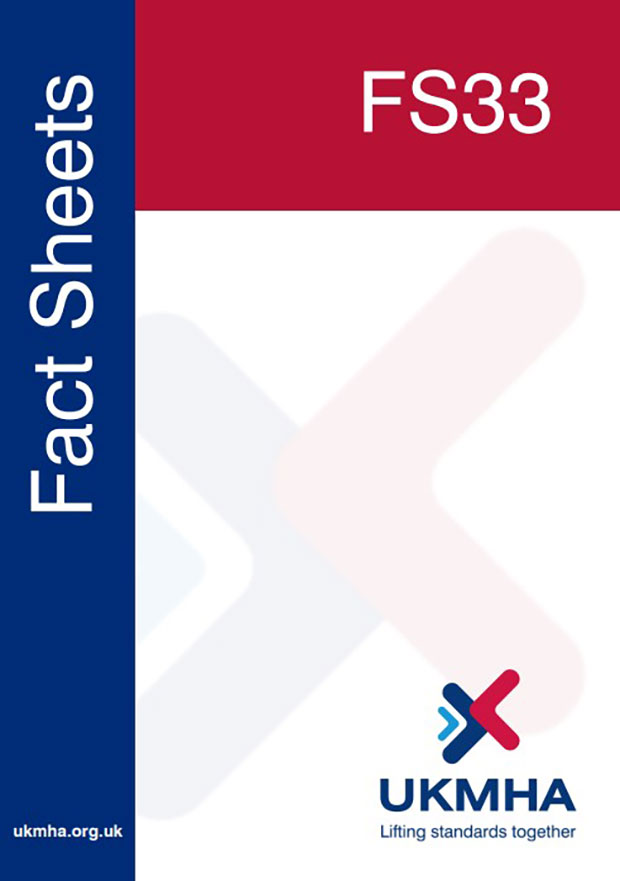UK Material Handling Association (UKMHA) has released a new Fact Sheet entitled “Battery Producer Responsibilities”. This guidance is freely available from the UKMHA website and is aimed at anyone introducing industrial trucks to the UK marketplace. It explains that, legally, the battery producer is the organisation who first places the battery on the UK market, therefore, this may be the importer of the truck rather than the manufacturer of the battery.
 UKMHA Technical Director, David Goss, explains, “Placing a battery on the UK market has many obligations. Battery producers must be registered and can be responsible for the safe disposal of other producer’s batteries as well as their own. Although there is a thriving scrap market for lead-acid batteries, lithium-ion end of life can be an expensive burden. We have published this Fact Sheet to help manufacturers, importers and distributors understand what the law requires of them.”
UKMHA Technical Director, David Goss, explains, “Placing a battery on the UK market has many obligations. Battery producers must be registered and can be responsible for the safe disposal of other producer’s batteries as well as their own. Although there is a thriving scrap market for lead-acid batteries, lithium-ion end of life can be an expensive burden. We have published this Fact Sheet to help manufacturers, importers and distributors understand what the law requires of them.”
Generally, the batteries used in industrial trucks are either classified as ‘industrial’ e.g. traction batteries, or ‘automotive’ e.g. starter batteries for internal combustion engines. UK legislation places slightly different obligations on battery producers for each of these battery types.
The producer is the entity that introduces the battery to the UK market, irrespective of whether it is sold standalone, built into a machine, or supplied as a spare or replacement. Frequently, the producer is a party other than the battery manufacturer even if the battery manufacturer also has a UK presence. As there is no minimum limit on the legal definitions, importation of single battery/truck places all of the obligations of a battery producer on the importer, and, as detailed in the Fact Sheet, these obligations can be onerous.





Comments are closed.